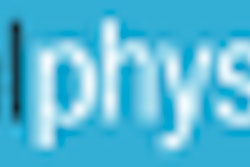
NEW YORK (Reuters Health), Aug 17 - Patients with hepatocellular carcinoma and who have few other treatment options are likely to benefit from proton beam therapy, Japanese researchers report in the August issue of Cancer.
Lead investigator Dr. Masaharu Hata told Reuters Health, "Proton beam therapy was given safely and effectively to a wide spectrum of patients with hepatocellular carcinoma."
Dr. Hata and colleagues at the University of Tsukuba retrospectively studied 21 patients for whom other treatment modalities were contraindicated or not feasible because of coexisting diseases such as severe cirrhosis, renal failure, and severe heart disease.
No patients had regional lymph node or distant metastases. Seven of the patients had multiple tumors, and the median tumor diameter was 40 mm.
Median total radiation dose was 73 Gy, the median number of fractions was 18 and median overall treatment time was 34 days. No toxicities of grade 3 or higher developed.
At a median follow-up of 3.3 years, all but one of the tumors was controlled. At five years, the objective response rate was 81% and the primary site control rate was 93%.
Four of 11 patients who had intrahepatic recurrence had a second course of proton beam therapy, which controlled the tumors.
At five years, overall survival was 33% and cause-specific survival was 67%.
"The results suggested that this method was tolerable and effective," concluded Dr. Hata, "even for patients who had severe coexisting diseases or unfavorable conditions for whom other treatment modalities were contraindicated or unfeasible."
By David Douglas
Last Updated: 2006-08-17 8:33:17 -0400 (Reuters Health)
Cancer 2006;107:591-598.
Related Reading
MRI accurately pinpoints common, benign liver lesions, May 7, 2006
Copyright © 2006 Reuters Limited. All rights reserved. Republication or redistribution of Reuters content, including by framing or similar means, is expressly prohibited without the prior written consent of Reuters. Reuters shall not be liable for any errors or delays in the content, or for any actions taken in reliance thereon. Reuters and the Reuters sphere logo are registered trademarks and trademarks of the Reuters group of companies around the world.

















